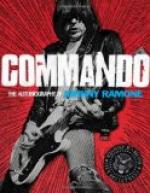We could fire at the enemy from a much shorter distance now, but were not yet in their rear. It was necessary that we should occupy the next position—a reef running parallel to the reef we were climbing, at a distance of eighty paces. But it was impossible to take that position, as our guns were firing bomb after bomb from the valley at our back, somewhat to the left of us, so that the stones flew up in the air. We also ran the risk of being taken for khakies, as our men knew nothing of our venture. The Captain sent down a message to tell them to stop shelling that position, as we wished to take it. Meanwhile, we kept on firing at the white kopje, and the khakies kept on firing at us.
I went back to the wounded officer, who was being looked after by the Captain. While we were standing talking, he died from loss of blood. Oh the cruel brutality of war! The poor man was not dead five minutes when we sat smoking his cigarettes.
We moved slightly more to the left towards the boulders. Khaki was on the one side, we on the other. Some of our men had a most original and amusing way of getting at the khakies. ’Come out, you rabbits, come out of your holes, else we’ll shoot down the lot of you!’ Then the poor things answered: ‘We’re afraid to come out. You’ll kill us!’ They really thought we would shoot them down if they surrendered. The officers had lost all control over the soldiers. Later on, at Nooit Gedacht, where we had cover as well as the enemy, it was proved that as soon as the officers lose control over the men they remain lying behind the rocks without firing a shot, as they are too frightened to expose themselves. Most of them still had their bandoliers full of cartridges—there, too, when they surrendered.
Before the war the English used to say they would fight us in our own way, from behind rocks; but they forgot that as soon as an officer, having to seek cover himself, fails to keep his eye on his men, they are too cowardly to lift their heads from behind the rocks, as they are not fighting for their independence. On a field like Selikatsnek we are by far the better men.
To get the khakies from behind the rocks, one of our men ran as hard as he could to a rock in their neighbourhood, and aimed at them. Then some of them threw down their guns and put up their hands. Others surrendered more calmly. So he sometimes made five or six of them surrender without their having fired a single shot at him. A shower of bullets always came from the white kopje, but, as his movements were quick and unexpected, they could not take proper aim at him. One of the khakies said as he surrendered: ‘It is better to surrender than to be a dead man.’ Another: ’Just fancy, in the hands of the Boers! I wonder what poor mother ’ll say!’
Meanwhile the gunners had received the Captain’s report, and ceased bombarding the reef that we wanted to storm. As it was getting late and there was no other means, one of our men ran forward as hard as he could, making use of every small covering, while the rest kept firing at the white kopje to prevent the enemy from taking a proper aim at him. There were not many khakies behind that reef, neither did they fire at him. The rest of us followed at intervals, while those who arrived at the reef again fired at the white kopje to cover the others.




